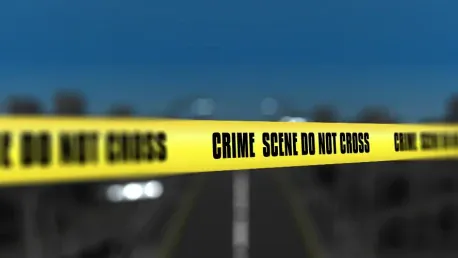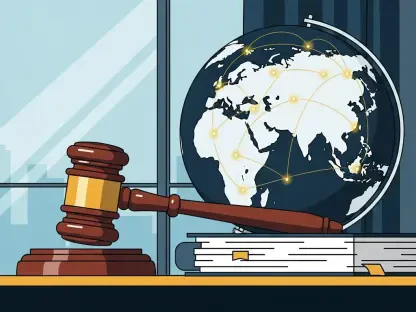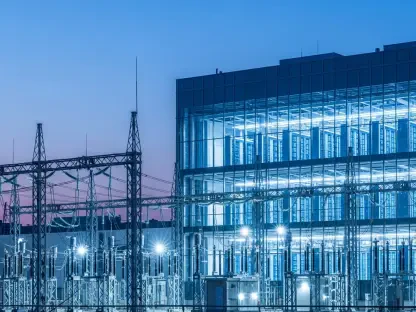The issue of public safety in Brazil is becoming increasingly urgent as crime rates continue to instill fear among the population, overshadowing even health concerns. Despite occasional fluctuations in crime statistics, a pervasive sense of insecurity permeates society, leaving many questioning whether the government is doing enough to address these dangers. President Lula’s administration faces declining approval ratings, exacerbated by what many perceive as a disconnect between governmental priorities and public safety needs.
Governmental Focus: A Disconnect from Public Demand
Absence of Public Safety in Government Priorities
In recent months, the Lula administration has presented various agendas to the government’s parliamentary leaders, yet public safety is conspicuously absent from these discussions. This omission is troubling given the widespread anxiety about crime that grips citizens on a daily basis. Minister Alexandre Padilha’s agenda, which notably excluded public safety, starkly contrasts with the reality on the ground where threats to personal security are a dominant concern for Brazilians.
Proposals from the Justice Ministry, such as the “fair penalty” initiative and the constitutionalization of the Unified Public Security System, indicate some recognition of the problem. However, these ideas have not been prioritized within the broader government framework. This reluctance to prioritize safety initiatives suggests a gap between policy intentions and the actual needs of the Brazilian populace. The government’s inaction, coupled with misleading improvements in select crime statistics, leaves many questioning the administration’s commitment to their safety.
President Lula’s Priorities in the Amazon
President Lula’s recent political engagements indicate a substantial focus on the Amazon, discussing environmental and economic concerns but omitting serious issues of violence and crime within the region. While environmental issues are undoubtedly important, the staggering levels of lethal violence, particularly in the Amazon, require immediate attention. According to the November 2023 “Cartography of Violence in the Amazon” report by the Brazilian Public Security Forum, the Amazon’s average violence rate significantly exceeds the national average.
This comprehensive report also highlights the alarming rates of violent deaths among indigenous populations, femicides, and rapes that plague the region. Additionally, organized crime activities, including illegal logging, mining, and rampant drug trafficking, have taken a firm hold in many Amazonian cities. The prioritization of the Amazon’s environmental agenda, without addressing the severe public safety threats, leaves communities vulnerable and exacerbates the overall sense of neglect citizens feel from their leadership.
Complex Challenges of Implementing Public Safety Policies
Lack of Elite Consensus and Coordination Issues
Addressing public safety in Brazil faces multifaceted challenges that hinder the development and implementation of effective policies. One significant issue is the lack of consensus among influential elites, including political, business, and judicial leaders, which complicates collaborative efforts. Coordination between the judiciary, responsible for interpreting and enforcing laws, and the executive branch, tasked with policy creation and implementation, is often lacking. These disjointed efforts result in fragmented and ineffective safety measures.
Compounding these difficulties are the entrenched interests of political, bureaucratic, and corporate entities resistant to changes that may disrupt established power structures. This resistance not only slows progress but can also stymie innovative policy solutions. Furthermore, the democratic process and the pressure to secure re-election often dissuade politicians from committing to long-term policies that may not yield immediate benefits, thereby neglecting necessary structural changes to public safety.
Political and Bureaucratic Hurdles
The Brazilian political and bureaucratic landscape presents additional hurdles to effective public safety reform. Politicians, often driven by the need for re-election, focus on short-term gains rather than sustainable solutions. This short-sighted approach impedes the development of comprehensive safety policies that require a long-term commitment and steady implementation. Stability within the government is a prerequisite for effective policy execution, yet frequent political shifts disrupt continuity and the ability to see reforms through to completion.
Bureaucratic inertia further complicates matters. The institutional frameworks responsible for public safety are often bogged down by inefficiency and a lack of responsiveness. This results in slow policy adoption and poor implementation, diluting the impact of new safety measures. Additionally, entrenched corruption within certain sectors of the government undermines efforts to combat crime effectively, eroding public trust in law enforcement and administrative systems designed to protect them.
The complexities involved in tackling Brazil’s public safety issues are immense, demanding a multifaceted and cohesive approach. Without clear prioritization from the government and dedicated efforts to overcome these political and bureaucratic challenges, meaningful progress remains elusive. To truly address the citizens’ safety concerns, a comprehensive and unified stance is essential, prioritizing the safety of the populace above other competing interests.
Future Considerations and Solutions
The urgency of public safety in Brazil is escalating as rising crime rates fill the population with fear, overshadowing even health and other concerns. Although crime statistics occasionally fluctuate, a widespread feeling of insecurity grips society. This has led many to question whether the government is effectively tackling these dangers. President Lula’s administration is experiencing a drop in approval ratings, further fueled by a perception that there is a gap between the government’s priorities and the public’s safety needs. This disconnect has sparked debates on whether current policies are sufficient to ensure citizens’ safety. Many feel that the administration should re-evaluate its approach to effectively combat crime and restore a sense of security among Brazilians. The pressing issue of public safety remains a central concern for the nation, demanding immediate and focused governmental action to alleviate the fear pervasive among the populace.









